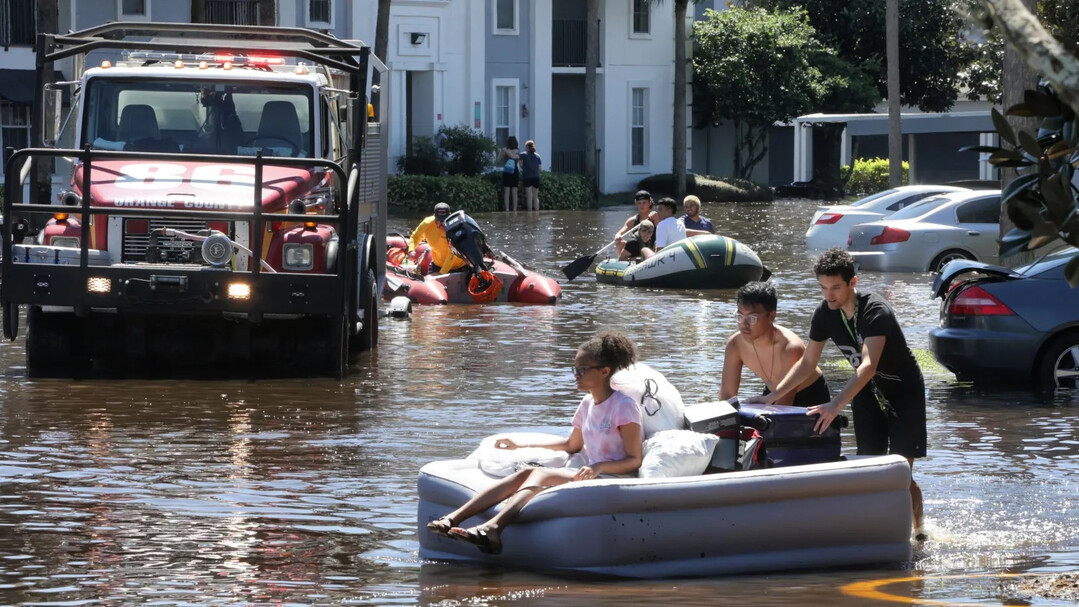
Since the beginning of the Donald Trump administration, approximately $300 million in federal funds earmarked for preventing natural disasters such as floods and hurricanes in Florida have been frozen. Adding to this, the recent abolition of the relevant support program itself by the Federal Emergency Management Agency (FEMA) is expected to inevitably cause significant disruptions to Florida's disaster preparedness projects.
Cameron Hamilton, the FEMA Administrator, announced the complete termination of the 'Building Resilient Infrastructure and Communities (BRIC)' program last week in a statement, labeling it a "wasteful and politicized grant program." The BRIC program constitutes a portion, but a significant one, of the FEMA funds received by Florida. This program's termination, coinciding with the announcement that the Trump administration is considering abolishing FEMA itself and directly supporting state governments with disaster response funds, has sparked further controversy.
Hamilton canceled all BRIC grants approved between 2020 and 2023 that have not yet been executed. Consequently, Florida is now in a position where it will be unable to use $293 million of the $312 million that Congress approved for hurricane relief and flood prevention efforts and will have to return it to the federal government. To date, Florida has only executed $19 million, or 6% of the total, in BRIC grants.
Sadaf Knight, CEO of the bipartisan policy research institution 'Florida Policy Institute,' strongly criticized the move, stating, "Canceling funds approved by Congress for flood prevention and local government storm preparedness is an absurd and dangerous measure, especially in a state like Florida that is vulnerable to climate disasters." Knight pointed out that Florida is experiencing stronger and more frequent storms than in the past and faces urgent challenges in addressing sea-level rise and improving aging stormwater management systems. She added, "Depriving us of these critical resources puts lives, property, and public safety at unnecessary risk," and urged Florida's federal lawmakers to "commit to the public to restore and protect this vital funding."
The BRIC program was initiated in 2020 during President Trump's first term and has provided $5 billion in support to states and communities. However, FEMA officials argue that during the Biden administration, the program became "more focused on political agendas than on helping Americans impacted by natural disasters."
President Trump froze all FEMA funds, including BRIC grants, immediately after taking office in January. In response, approximately 20 states led by Democratic governors, along with Washington D.C., filed a lawsuit against the Trump administration, arguing that the freeze unfairly targeted so-called 'blue states' with policies differing from his views on immigration, climate change, DEI (Diversity, Equity, and Inclusion), and so-called "woke" ideologies.
Florida did not join this lawsuit, and Governor Ron DeSantis has expressed support for President Trump's efforts to reorganize FEMA. In a February press conference, Governor DeSantis stated, "Completely eliminating the bureaucracy of FEMA will lead to more funds being used more effectively than going through the current FEMA bureaucracy."
Last year, Florida received over $1 billion in FEMA aid for the recovery from Hurricanes Helen and Milton. FEMA has provided Florida with $8.5 billion in disaster relief funds over the past 14 years across 21 incidents. However, there has been no official comment from the Governor's office or the state's Division of Emergency Management regarding the BRIC grant cancellations.
The states that filed the lawsuit initially achieved success when Judge John McConnell of the U.S. District Court for the District of Rhode Island ruled that the Trump administration's freeze on FEMA funds was a "covert effort to punish states that have different immigration policies than the White House" and ordered the freeze to be lifted. However, days later, Judge McConnell granted President Trump a stay after a U.S. Supreme Court ruling in a different case appeared to justify the administration's actions.
Ultimately, FEMA canceled BRIC grants that Florida intended to use for projects such as elevating flood-prone roads in Jacksonville, constructing a hurricane-resistant safe facility for emergency responders in Key West, and improving flood control in canals in northern Miami-Dade and southern Broward counties.
The agency most significantly impacted by the termination of the BRIC program is the South Florida Water Management District, which is responsible for water quality management, water supply, ecosystem restoration, and flood control in a 16-county region from south of Orlando to the Keys. The district had only received $6 million of its $150 million grant before the program was canceled. These funds were intended for the construction of three structures on canals and reservoirs in northern Miami-Dade and Broward counties to improve flood protection.
Drew Bartlett, the district's executive director, stated at a board meeting on Thursday that "design work on some pump stations is underway and will continue while we assess the ultimate impact on those projects."
The Florida Division of Emergency Management will have to return $36.9 million in BRIC funds allocated for administrative costs and technical assistance. The City of Jacksonville will lose $24.9 million intended for road elevation and improvements to water treatment facilities, while the City of Key West will lose $11.25 million for the planned construction of a community safe facility, and Pasco County will lose $5.56 million for 18 road improvement projects, leading to inevitable budget cuts in numerous communities across the state.
This sudden freezing of funds and program termination by the federal government is expected to severely impact the disaster preparedness capabilities of Florida, a state vulnerable to natural disasters such as hurricanes. Amid the growing threat of climate change, it is being criticized as a critical decision that jeopardizes the safety of residents.
[Copyright (c) Global Economic Times. All Rights Reserved.]






























